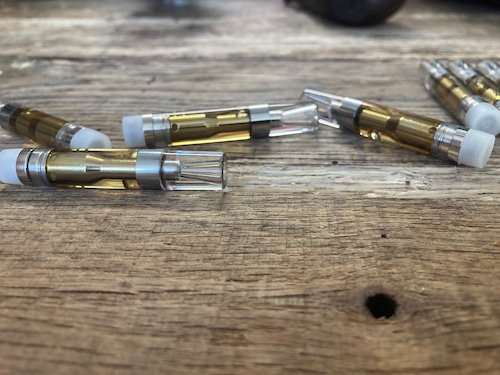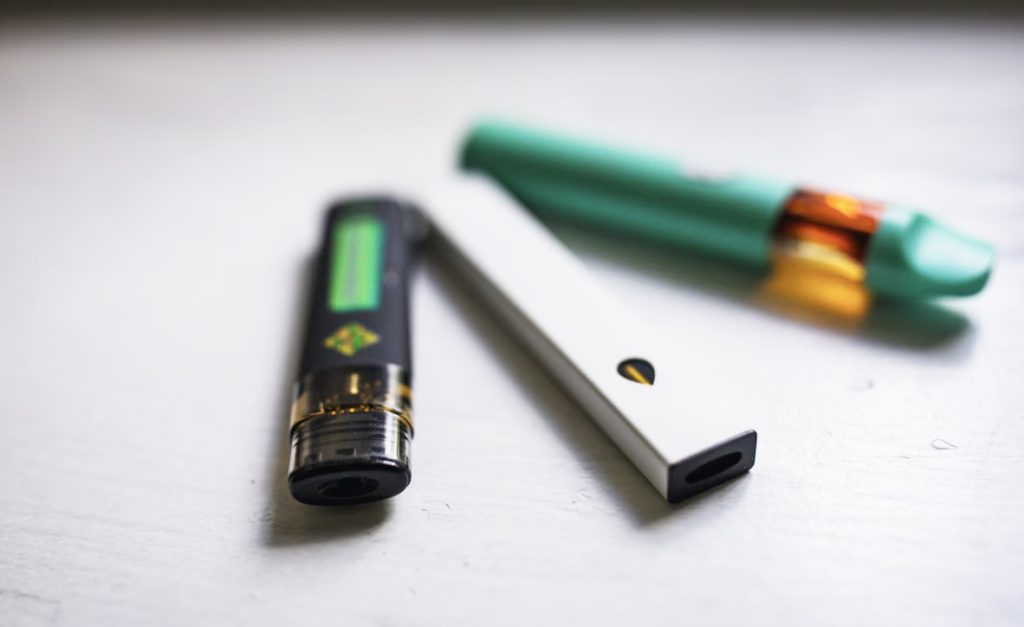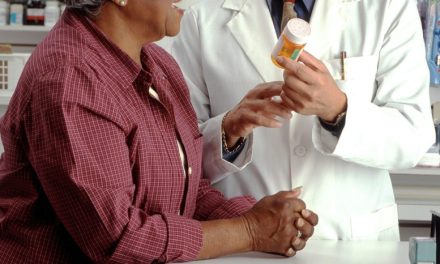By Amy Yurkanin , Zoe Jaeger | Milwaukee Journal-Sentinel, & Ashley Okwuosa | The Examination
Sarah arrived at a Tuscaloosa hospital in July 2023 armed with a printout of a birth plan laying out her wishes for labor and delivery.
She was preparing to have her second daughter, and Sarah knew she wanted some freedom to move around, and for her newborn to stay in the room with her after birth. Then her delivery veered off script.
Without her knowledge, Sarah had been tested for drugs. The test came back positive for THC.
“I said ‘OK,’ I did hit a delta-8 pen, but that was it,” Sarah said. “They said, ‘We do have to test the baby, it’s hospital policy. Because you tested positive, we have to test the baby as well.’ They tested the baby, and she came back positive as well.”
Sarah and her husband, Derek – which are not their real names – said they had both used delta-8, which is a hemp product now sold at gas stations and vape shops all over Alabama and many other states. It’s not exactly marijuana, but thanks to some clever processing, it’s pretty close.
“We’ve only ever done delta-8,” Derek said. “A legal product on the market. You can go buy it at any store. I can go take you to it right now at the gas station. That’s all it is. What’s the difference between that and any other legal product?”
No one would get high from smoking the hemp plant okayed by the federal Farm Bill in 2018. But hemp does contain small amounts of the same mind-altering compounds in marijuana.
What Sarah and Derek didn’t know was that a whole industry has emerged in the last few years to extract those psychoactive ingredients and concentrate them in high amounts in sodas, candies and vapes. Those concentrated hemp products can get you high. And they can lead to a failed drug test.
In Alabama, the consequences can be devastating. The state arrests more women than any other for drug use during pregnancy, according to Pregnancy Justice, and a failed test can lead not only to investigation by child welfare, but also to criminal charges. Other states, including Oklahoma, South Carolina and Mississippi, have similar policies.
Marijuana remains illegal in Alabama and about two dozen other states. But even in states where criminal prosecutions are rare, people who use delta-8 can face job loss or the revocation of parole or probation over tests that come back positive for marijuana.
In Wisconsin, a woman going by the name Madeline filed a complaint after she was fired for failing an on-the-job drug test. She tested positive for marijuana even though she only used federally legal hemp products, her attorney Aaron Halstead said.
She was injured on the job after equipment fell on her head. She used gummies made with cannabinol, another type of cannabinoid, to treat the pain. After she went to the emergency room, her employer asked her to take a drug test, which came up positive for marijuana, her attorney said.
“So our claim is that she was terminated for the use of a lawful substance, which is illegal under Wisconsin statute,” Halstead said. “The conduct of the employer is illegal.”
Scott – which is not his real name – moved from California to North Carolina to take a job. He said he lost access to legal medical marijuana and turned to delta-8 products to help with symptoms of post-traumatic stress disorder. But they caused him to fail a pre-employment drug screen at a biopharma company.
“The only thing I was consuming was federally legal hemp, and the [HR] person immediately was like, ‘so marijuana?’ And I said ‘no, federally legal hemp, delta-8 and CBD products’,” said Scott. He said he had been using these products without knowing that they would cost him a job. “I had to resort to taking out loans, I maxed out my credit card, I almost ended up homeless.”

For Sarah and Derek, the investigation turned into a two-month nightmare. After Derek also failed a drug test, social workers asked the couple to agree to a plan that would temporarily send the two kids to live with his parents, more than two hours away, near Huntsville. They couldn’t keep their children at home or even take care of them without supervision.
Child welfare agencies refer to these arrangements as “safety plans.” Parents must voluntarily agree to the plan, and often do to avoid court orders that would send kids to foster care instead.
As delta-8 and a growing array of hemp-derived products, like delta-9/THCA and HHC, have become more popular, drug testing hasn’t kept up.
Some drug tests can’t distinguish between illegal marijuana and legal delta-8, said Lukasz Ciesla, a biology professor at the University of Alabama.
Delta-9 THC is the main mind-altering ingredient in marijuana. Although the delta-9 molecule binds more strongly to brain receptors, causing a stronger “high,” delta-8 can produce some of the same feelings.
Many people say they use delta-8 for sleep and pain relief. Sarah broke her leg in a golf cart accident and found out about her first pregnancy when she went to the hospital. Doctors prescribed opioids for pain relief, she said, then the anti-nausea drug Zofran for morning sickness.
She said delta-8 treated both symptoms with fewer concerns about side effects. Derek began using delta-8 for chronic pain from an injury he sustained during his time in the U.S. Army.
“Delta-8 and delta-9 are chemically quite similar,” Ciesla said. “The only difference is the position of the double bond in the molecule.”










